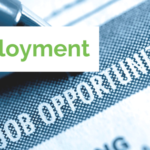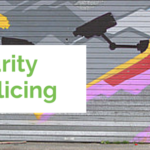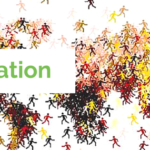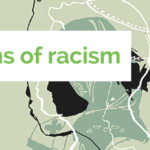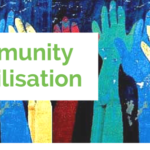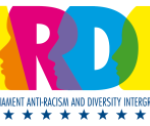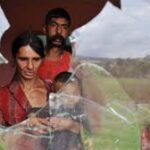
Looking back and ahead: ENAR’s impact in 2015 and plans for 2016
2015 was a tough year: the dire conditions for refugees and migrants arriving to Europe, the tragic terrorist attacks in Paris, the growing polarisation of our societies and the disproportionate impact these events had on vulnerable individuals, including ethnic and religious communities.
But it was also a challenging year in the sense that ENAR was in the right place at the right time to provide analysis, vision, concrete policy proposals, and to help decision makers and journalists make sense of these events and react according to Human Rights based approaches. 2015 has confirmed that the long and painful process of strategical repositioning that we undertook in 2011-12 is now starting to pay off – and it’s only the beginning. 2016 will therefore be a continuation and strengthening of our advocacy work of 2015 to achieve equality and social justice for ethnic and religious minority individuals in Europe.7 highlights from 2015
A stronger and more visible Anti-Racism and Diversity Intergroup in the European Parliament: Thanks to ENAR and partners’ active involvement, the intergroup was officially established and has seven thematic working groups. The European Commission committed to guidelines on equality data collection: As a result of concerted efforts by ENAR and others since 2013, the Commission’s conclusions from the Colloquium on Fundamental Rights recommend Member States to “tackle gaps in monitoring discrimination” and refer to the need for tools, guidance and (…) peer learning to support Member States’ efforts in the collection of equality data”. The European Commission committed to compiling best practice guidance for Member States on effective implementation of EU hate crime law: The idea of guidelines on hate crime standards is mentioned in the Conclusions from the Fundamental Rights Colloquium and follows advocacy by ENAR and partner organisations. European Institutions took steps to recognise and combat Islamophobia: The European Institutions have dedicated high-level events to combating Islamophobia for the first time ever. High-level politicians and decision-makers have recognised the reality of Islamophobia and the urgency to act. The European Commission has also appointed an EU coordinator on Islamophobia. The need for national strategies to combat Islamophobia has been aired by the European Commission and the European Parliament. European bodies made some commitments to recognise Afrophobia: The EU Fundamental Rights Agency publicly committed to look specifically at the situation of people of African descent. Both the Dutch and Swedish governments, thanks to the mobilisation of ENAR members in these countries, have committed to either dedicated plans/strategies taking into account the specificity of Afrophobia or action plans for the UN Decade for people of African descent. Increased recognition of anti-Gypsyism as an obstacle to implementation of inclusion policies for Roma: ENAR and the pro-Roma NGO coalition have succeeded in putting anti-Gypsyism on the European Commission and the European Parliament’s priority map for Roma inclusion. Re-affirmed mobilisation on Antisemitism: ENAR’s advocacy regarding Antisemitism this year led to reinforced cooperation with members and other organisations, and the European Commission appointing an EU coordinator on Antisemitism. The need for national strategies to combat Antisemitism has also been aired by both the European Commission and the European Parliament.What ENAR plans in 2016
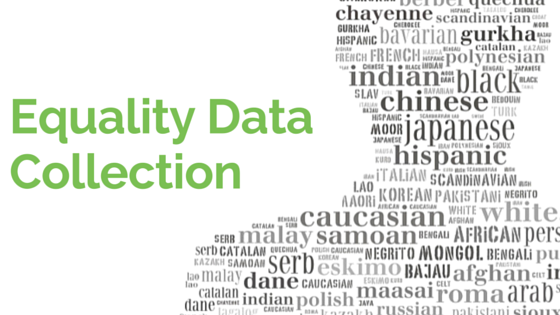 ENAR is advocating for the European Commission to issue guidelines to Member States on how to collect safe and inclusive data to measure discrimination. This year, we will organise an event in the European Parliament to build leadership across EU institutions on equality data collection. We will also make sure that the launch of the updated version of the 2006 European Commission handbook is made a powerful advocacy opportunity to change national practices.
ENAR is advocating for the European Commission to issue guidelines to Member States on how to collect safe and inclusive data to measure discrimination. This year, we will organise an event in the European Parliament to build leadership across EU institutions on equality data collection. We will also make sure that the launch of the updated version of the 2006 European Commission handbook is made a powerful advocacy opportunity to change national practices.
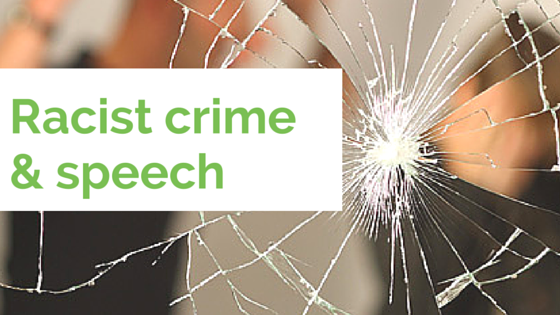 ENAR will continue advocating for the European Commission to produce hate crime EU law guidance. We will push MEPs, the European Commission and EU Member States to introduce improved hate crime legislation to cover all forms of hate crime. We will call on the European parliament to propose stricter and more dissuasive sanctions against MEPs using hate speech in the European Parliament. We will continue to develop a monitoring system for reporting hate speech in the institutions.
ENAR will continue advocating for the European Commission to produce hate crime EU law guidance. We will push MEPs, the European Commission and EU Member States to introduce improved hate crime legislation to cover all forms of hate crime. We will call on the European parliament to propose stricter and more dissuasive sanctions against MEPs using hate speech in the European Parliament. We will continue to develop a monitoring system for reporting hate speech in the institutions.
 We continue advocating for the removal of labour market barriers affecting ethnic and religious minorities including migrants. This year we will hold a steering group on employment indicators with experts and community representatives. In December, we will hold the annual Equal@work seminar on diversity management with business, trade unions and NGOs partners. We will also produce a toolkit on inclusion of religious diversity at the workplace.
We continue advocating for the removal of labour market barriers affecting ethnic and religious minorities including migrants. This year we will hold a steering group on employment indicators with experts and community representatives. In December, we will hold the annual Equal@work seminar on diversity management with business, trade unions and NGOs partners. We will also produce a toolkit on inclusion of religious diversity at the workplace.
 2015 has seen security issues back at the forefront of polices in the EU and its Member States, as the result of violent terrorist attacks in Europe. ENAR will engage at EU and national levels to ensure trust building and inclusive security and policing policies grounded in long term social inclusion. We will also co-organise an event on ethnic profiling in the European Parliament.
2015 has seen security issues back at the forefront of polices in the EU and its Member States, as the result of violent terrorist attacks in Europe. ENAR will engage at EU and national levels to ensure trust building and inclusive security and policing policies grounded in long term social inclusion. We will also co-organise an event on ethnic profiling in the European Parliament.
 ENAR supports ongoing efforts for safe and legal entry and reception conditions for migrants and asylum seekers. We wi ll focus on integration of migrants including their right to security and non-discrimination. ENAR will continue to monitor incidents of racist discourse and violence against migrants in EU Member States.
ENAR supports ongoing efforts for safe and legal entry and reception conditions for migrants and asylum seekers. We wi ll focus on integration of migrants including their right to security and non-discrimination. ENAR will continue to monitor incidents of racist discourse and violence against migrants in EU Member States.
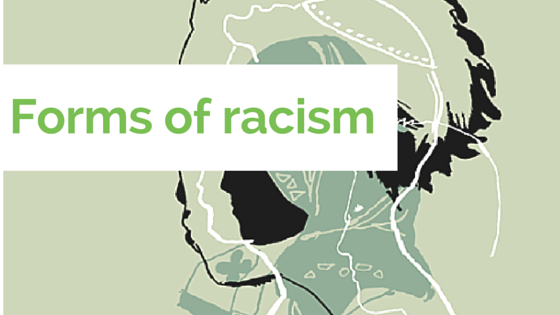 In April, we will launch 8 national reports and one European report on the impact of Islamophobia on women during a European conference on Muslim women’s experiences of discrimination (Forgotten Women project). By the end of the year, we will produce ENAR’s 3rd Anti-Racism in Focus book on anti-Gypsyism. We will continue regular advocacy meetings at national and EU levels on Antisemitism. The launch of our Shadow Report on Afrophobia will mark the start of a campaign for recognition and justice in the frame of the UN Decade for people of African descent.
In April, we will launch 8 national reports and one European report on the impact of Islamophobia on women during a European conference on Muslim women’s experiences of discrimination (Forgotten Women project). By the end of the year, we will produce ENAR’s 3rd Anti-Racism in Focus book on anti-Gypsyism. We will continue regular advocacy meetings at national and EU levels on Antisemitism. The launch of our Shadow Report on Afrophobia will mark the start of a campaign for recognition and justice in the frame of the UN Decade for people of African descent.
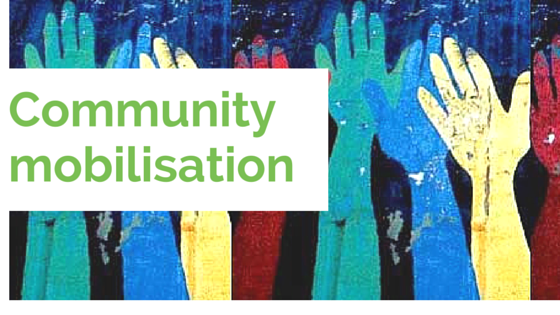 We will continue with dedicated project opportunities for ENAR members in areas related to ENAR strategic priorities. We are increasing our efforts to mobilise communities towards positive change. In March, we will hold a training on community mobilisation techniques applied to good practices of cooperation between Jews and Muslims, which will be transferred to two pilot projects throughout the year.
Become a member of ENAR and work with us for equality, solidarity and wellbeing for all in Europe
Our team is here to answer any questions you may have on these highlights. Check who is who
We will continue with dedicated project opportunities for ENAR members in areas related to ENAR strategic priorities. We are increasing our efforts to mobilise communities towards positive change. In March, we will hold a training on community mobilisation techniques applied to good practices of cooperation between Jews and Muslims, which will be transferred to two pilot projects throughout the year.
Become a member of ENAR and work with us for equality, solidarity and wellbeing for all in Europe
Our team is here to answer any questions you may have on these highlights. Check who is who




